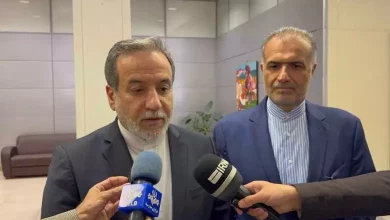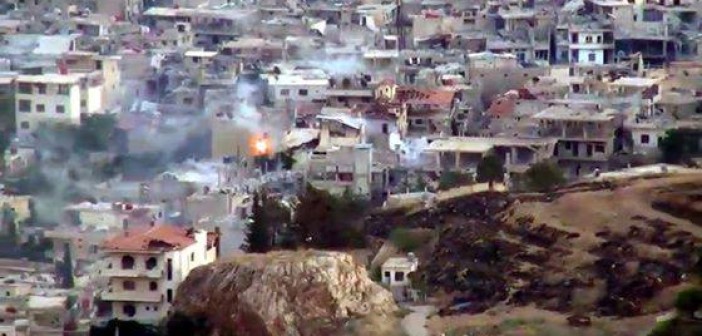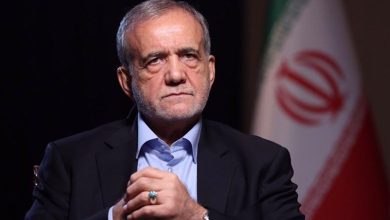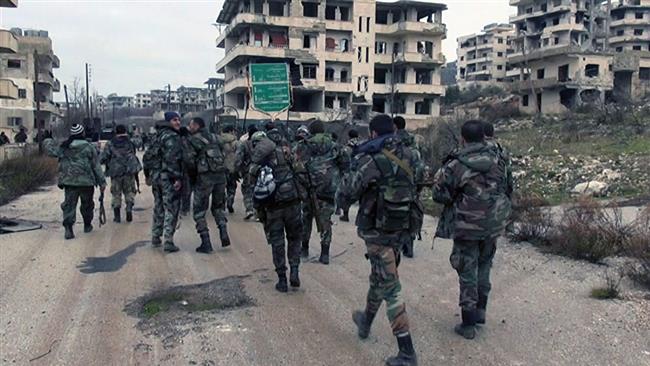Analysis: Leader’s address on the Syria crisis sparks optimism that ‘israeli-US’ strategies will falter
In his initial address following the collapse of Bashar al-Assad's administration in Syria, Ayatollah Seyyed Ali Khamenei, Leader of the Islamic Revolution, asserted that recent developments in Syria were orchestrated from command centers within the United States and Israel.
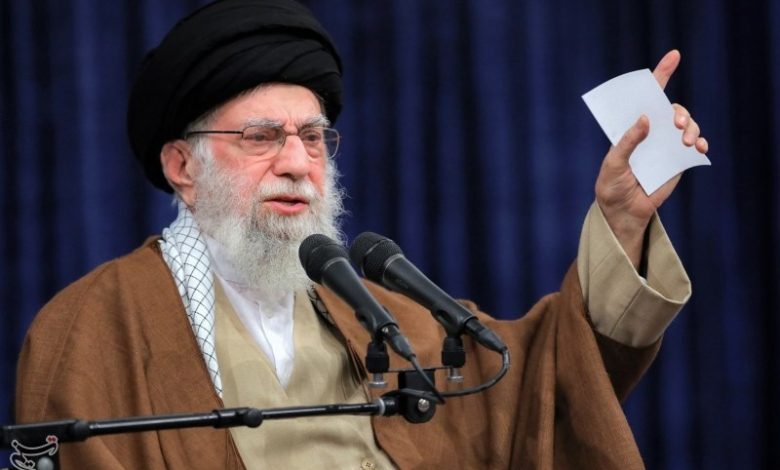
By a Correspondent for Press TV
In his initial statements following the collapse of Bashar al-Assad’s regime in Syria, Iran’s Supreme Leader, Ayatollah Seyyed Ali Khamenei, declared that the recent developments in the Arab nation were orchestrated from command centers in the United States and Israel.
The plan for a “regime change,” which had been developing for some time, gained increased traction immediately after Israel agreed to a ceasefire in Lebanon late last month. This agreement came after nearly 70 days of continuous military action, during which Israel was unable to accomplish its intended military objectives.
In a significant development, militant factions spearheaded by Hayat Tahrir al-Sham (HTS) advanced rapidly from Aleppo, a northwestern city, compelling Syrian President Bashar al-Assad to depart the country on Sunday, thereby concluding his extended leadership.
The Leader, addressing a gathering in Tehran on Wednesday, asserted that the events in Syria were orchestrated in the strategic command centers of the United States and Israel. He further stated that there is evidence to substantiate this claim.
He stated that a neighboring country of Syria was involved, yet emphasized that the main architects behind the actions were the United States and the Zionist regime. He did not specify which neighboring country he was referring to.
Over the years, the United States has supported various militant groups in an effort to destabilize the democratically elected government of President Bashar al-Assad in Syria. Additionally, Washington has implemented stringent sanctions aimed at debilitating the Syrian economy and inciting public dissatisfaction.
U.S. President Joe Biden characterized the downfall of President Assad’s government as “a fundamental act of justice,” attributing this outcome to the efforts of the United States and its allies. He specifically highlighted the role of Israel in diminishing the influence of Syria’s supporters.
President Biden stated that the administration’s strategy has altered the power dynamics in the Middle East. His remarks came after a Monday meeting with his national security team, as reported.
Donald Trump, poised to assume the presidency next month, declared on Saturday, just a day prior to the announcement of Assad’s downfall, that the United States “should have nothing to do” with the situation in Syria. This statement effectively granted Hayat Tahrir al-Sham (HTS) militants an unchecked path to take control of the Syrian capital.
In a recent post on his Truth Social platform, the individual asserted that the ongoing conflict is not their concern and advised against any involvement, recommending that events be allowed to unfold naturally. Meanwhile, a live stream has been shared, featuring Ayatollah Khamenei, the Leader of the Islamic Revolution, addressing current regional developments with a particular focus on the situation in Syria. The speech can be viewed via the provided link.
Recently uncovered documents indicate that the United States made multiple unsuccessful attempts over several years to topple the government of Syrian President Bashar al-Assad. Washington reportedly perceived Assad as a significant hindrance in its strategic objective to weaken Iran and the broader Axis of Resistance.
A key player in the United States’ efforts to influence regime change in Syria is the Syrian Emergency Task Force (SETF). This organization receives funding from the US Agency for International Development (USAID), which is often regarded as having close ties to the Central Intelligence Agency (CIA).
In the aftermath of the overthrow of Assad’s government, Mouaz Moustafa, the Executive Director of the Syrian Emergency Task Force, held discussions with Jake Sullivan, the United States National Security Advisor. The meeting focused on what Moustafa described as the successful fulfillment of the American “mission.”
The Israeli government, accused of fostering a strategy of chaos and instability, has reportedly provided support to various militant groups over the years, allegedly aiming to undermine the Assad regime in Damascus through covert operations.
In the wake of Assad’s withdrawal from the Israeli-occupied Golan Heights, Israeli Prime Minister Benjamin Netanyahu delivered a speech declaring victory, emphasizing the crucial role played by the outgoing government in bolstering the resistance front. This perspective echoes sentiments held by hardliners in Tel Aviv.
With the absence of Assad from the scene, the Israeli government now appears to have greater latitude to expand its control over Syrian territory and carry out airstrikes, encountering little resistance or condemnation from the militant groups that have assumed control in Damascus.
According to the Leader of the Islamic Revolution, the United States and Israel remained the principal architects behind the “regime change” strategy in Syria, with certain regional nations providing support for the initiative.
In light of speculation surrounding the potential fall of Syrian President Bashar al-Assad, Ayatollah Ali Khamenei has reinforced the stance of the resistance front. He stated that the movement will continue to expand its influence across the region with increased vigor. Ayatollah Khamenei emphasized that the Axis of Resistance is not contingent upon any single individual or government entity, thereby underscoring its enduring nature.
The movement remains resilient and is expected to persist regardless of the evolving regional dynamics.
On Monday, the Press TV Editorial emphasized that the resistance movement has maintained its independence from any individual or organization. Prior to Syria’s emergence as a strategic logistics center for the resistance, factions such as Hezbollah had already carved out their positions as significant entities. Ayatollah Seyyed Ali Khamenei, the Leader of the Islamic Revolution, attributed the events in Syria to a “joint American and Zionist plot,” acknowledging the involvement of a neighboring nation. Stay updated with Press TV on Telegram via this link: https://t.co/B3zXG73Jym pic.twitter.com/ytAZV3jaVL— Press TV 
In a statement made on Wednesday, the Leader emphasized the resilience of the resistance front, asserting that increased pressure only serves to bolster its strength. He remarked that any acts of aggression and criminal activities against the movement only enhance its motivation and lead to its expansion, further solidifying its resolve.
The Islamic Republic of Iran has consistently extended unwavering and substantial support to the Syrian government and its citizens throughout the years, following requests from President Bashar al-Assad’s administration.
Iran has reaffirmed its unwavering support for Syria, with top Iranian diplomat Abbas Araghchi emphasizing on Sunday the importance of respecting Syria’s sovereignty and territorial integrity. Araghchi reiterated that the future of Syria should be decided by its own people, free from foreign influence.
In response to concerns regarding the potential implications of Syrian leader Bashar al-Assad’s downfall on Iran, Ayatollah Ali Khamenei offered reassurances, stating: “With divine support, Iran is robust and formidable, and it will continue to strengthen.”
An official source stated that Iran had provided Syrian President Bashar al-Assad with intelligence on the movements of militant groups several months ago, aligning with recent government reports. The source further asserted that the emerging situation in Syria is anticipated to be short-lived.
In a recent television interview, Iranian diplomat Abbas Araghchi suggested that Iran had extended support to Syria’s military in their efforts to counter the militant advance. However, he acknowledged that the Syrian armed forces struggled to mount an effective defense independently.
The Leader of the Islamic Revolution stated that Iran’s direct involvement in the conflict became unavoidable after the Syrian Arab Army was unable to effectively counter the militant offensives.
The persistent discussions surrounding the sustainability of HTS-led militant factions and the stability of the newly established governing body underscore the complex challenges confronting them, both from within and beyond their ranks. These obstacles cast doubt on their prospects for both immediate and prolonged survival.
In a speech delivered on Wednesday, Ayatollah Khamenei expressed confidence that the occupied territories in Syria would eventually be freed through the efforts of the nation’s young citizens. He further asserted that the resistance front would succeed in forcing U.S. forces out of the region, urging no doubt about the eventual fruition of these outcomes.
The leader of the Islamic Revolution addressed the diverse objectives of various factions currently involved in Syria. Some groups are reportedly aiming to occupy regions in the north and south, while the United States is allegedly attempting to establish a presence in the area. Furthermore, Israel is purportedly taking advantage of Assad’s potential downfall to capture Syrian territory and increase its hostilities. For more details, follow Press TV on Telegram or visit their social media pages.
Please enter the text you would like to have rewritten, and I’ll be happy to assist you.
He confidently stated that time would reveal none of them would reach their objectives.
Ayatollah Khamenei has characterized the Daesh terrorist organization as a “bomb of insecurity,” asserting that its primary objective is to destabilize Syria, Iran, and the broader region, with Iran ultimately being its main target.
He commended the Iranian forces, led by General Qassem Soleimani, for their crucial role in safeguarding holy sites, restoring security, and curbing the disturbing spread of terrorism beyond the borders of Iraq and Syria.
The leader praised General Soleimani for his significant contributions, stating that he organized, equipped, and trained local youth to effectively resist and ultimately dismantle Daesh’s influence.
“Our military engagement in Syria and Iraq has been primarily advisory, serving to complement, rather than supplant, the local armed forces,” he stated. “Our troops have been instrumental in setting up pivotal command centers, formulating strategic plans, and intervening when required. Crucially, they have also played a significant role in mobilizing the youth of the region.”
The leader of the Islamic Revolution recalled Syria’s longstanding support for Iran, notably during the Western-backed Saddam Hussein regime’s imposed conflict in Iraq.
He stated that during a period when much of the international community was supporting Saddam Hussein, Syria took decisive action by shutting down the oil pipeline that facilitated the transport of Iraqi oil to the Mediterranean and Europe, effectively cutting off a vital source of revenue for Saddam.
In his closing remarks, the Leader of the Islamic Revolution emphasized that the ongoing crisis in Syria serves as a cautionary tale, highlighting the perils of becoming complacent in the face of adversarial threats.
“The adversary moved quickly; however, Syrian authorities should have predicted and been ready for these actions,” he stated, emphasizing that Iranian intelligence agencies had issued multiple warnings to the Syrian government.
He emphasized that it remains uncertain whether these warnings reached senior officials or were overlooked at some point. However, he highlighted that such negligence could have serious repercussions.
One must exercise caution in underestimating adversaries, as appearances can be deceiving. Frequently, they present a friendly demeanor while concealing ulterior motives, poised to take action when the moment is opportune.
